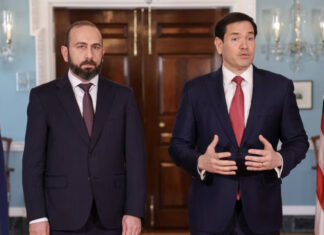Trump’s first presidency was marked by a passive approach to American policy in the South Caucasus. The United States was not particularly interested in what was happening in the South Caucasus, so the Trump administration mainly focused on regions that were of particular interest and vital importance, such as the Middle East, Asia, and Central Asia. Consequently, the administration was not significantly involved in the war unleashed by Azerbaijan in 2020, which took place at the peak of the US presidential election season.
Preoccupied with the election, Trump made a few statements addressing Armenians and sent his national security advisor to meet with the Armenian community, but he was unable or unwilling to take real steps to stop the war. Even after inviting the foreign ministers of Armenia and Azerbaijan to Washington, a ceasefire was not achieved.
As a matter of fact, under the Trump administration, Artsakh was attacked, and under Biden, it underwent depopulation and the ethnic cleansing of Armenians. This was despite the Trump administration’s limited involvement and the Biden administration’s active engagement in the South Caucasus region.
Today, it is difficult to predict what foreign policy Trump will pursue and how it might differ from his first term. On one hand, times have changed, especially given the ongoing war in Ukraine; on the other, US policy itself has shifted under the Biden administration. Biden had a clear policy in the South Caucasus and aimed to see a peace agreement in Armenian-Azerbaijani and Armenian-Turkish relations by the end of his presidency. Additionally, America was able to increase its involvement in the South Caucasus due to Russia’s diminished role following the 2020 Armenian-Azerbaijani war and involvement in the Ukrainian war. This allowed the US to fill that gap and quickly establish a presence in the South Caucasus.
It is important to consider that if Trump manages to end the war in Ukraine, Russia will inevitably seek to return to the South Caucasus and attend to its vital interests there. It had neither the resources nor the time to pursue due them to its involvement in Ukraine, where it faces global opposition. If all this occurs, Russia will certainly return to the South Caucasus, and the role and significance of the United States there will diminish.
Regarding Iran, on one hand, Trump mentions that he wants to establish peace in the Middle East, while on the other, he says that Israel must be given unconditional support. How these two statements will be reconciled is hard to imagine, as achieving peace requires either negotiating for it or imposing it — two fundamentally different approaches. In any case, further escalation with Iran does not align with Armenia’s interests, as Iran is one of Armenia’s two gateways to the outside world and has been a historic ally.








